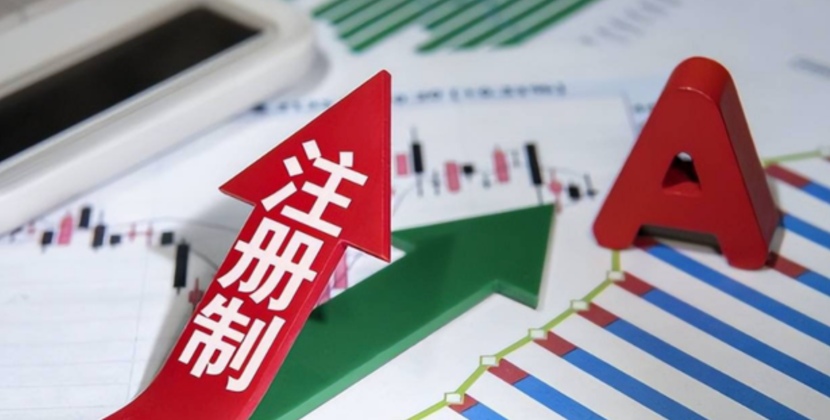
On April 10th, the first batch of companies under the main board registration system of the Shanghai and Shenzhen Stock Exchange were listed online in Beijing, Shanghai, and Shenzhen, and 10 companies were officially listed and traded on the Shanghai and Shenzhen main boards. As of the close of the first day of listing, all 10 new stocks have closed up, with no breaking points, all rising by over 45%. The holding of this listing ceremony marks the comprehensive implementation of the reform of the stock issuance registration system, and China's A-shares have officially entered the era of "comprehensive registration system".
What are the changes in the reform of the registration system compared to the approval system? The registration system refers to when a company issues stocks, all information and materials are submitted to the supervisory authority for review without making substantive judgments, and the issuance value of the company is determined by the market. The core of the registration system is the openness and transparency of information, which places power on the market, eliminates the 23 times P/E ratio limit for new stock issuance and the 44% rise and fall limit on the first day of new stock listing. This improves the efficiency of the capital market and is conducive to direct financing for enterprises. The market-oriented pricing mechanism improves resource allocation efficiency, coupled with the normalization of delisting, and accelerates the formation of a pattern of survival of the fittest. Compared with the approval system, the registration system reform simplifies the listing process and has a relatively low entry threshold. If a company wants to go public, as long as it meets the information disclosure requirements, it has the opportunity to be approved for listing. The issuance conditions should be transformed into information disclosure requirements as much as possible, and various market sectors should set diversified and inclusive listing conditions, requiring investors to make their own judgments on the disclosed information based on their own knowledge and risk capabilities. The registration system has to some extent lowered the threshold for stock issuance, but it does not mean "letting go", but rather allowing the market to better reflect the original appearance of listed companies, allowing the market to test the value of enterprises, and allowing investors to make their own investment decisions.
The registration system has been implemented to further test investors' information screening and professional investment abilities. With the increasing marketization of A-shares, the investment value of high-quality enterprises is highlighted, which further tests investors' information screening and professional investment abilities. From the perspective of institutions, institutions, and individual investors themselves, it will bring significant changes to the market ecology. Especially for investors, the change in the stock market ecosystem means that investment will focus more on the value investment of enterprises in a more fair, just, and open environment, and shape new sustainable investment concepts. With the further optimization of the price stability mechanism, the liquidity of the A-share market may be concentrated towards industry leaders or companies with good growth and strong core competitiveness. The difficulty of obtaining high returns through speculative behavior has increased, and the future market may focus more on allocation and value investment. De retail seems to be a trend, and the demand for institutional investors will gradually increase.
According to data statistics, by the end of 2022, the proportion of institutional investors holding circulating market value has reached nearly 20%, while the proportion of individual investors trading amount has decreased to around 60%. In the context of the comprehensive registration system, the team of institutional investors may continue to grow, while the proportion of individual investors may continue to slow down. The investor structure of the capital market may face significant changes in listing conditions and trading systems, Individual investors need to adapt and change in both ability and understanding. And it also has a deeper impact on adapting to individual investors' trading. For example, the market-oriented issuance of new shares will make it a past tense style to make sure that new shares can be sold without loss, and the investment logic of individual shares under the registration system will also change significantly. In the past, more speculation may gradually weaken, while the real investment will gradually return. This places higher demands on investors, especially as a more comprehensive understanding, analysis, and judgment of listed companies from a fundamental perspective may become a necessary part of daily investment. The comprehensive registration system will bring great changes to the A-share ecosystem. Under this system, especially for individual investors, it is necessary to adapt to new rules and changes, while also cultivating new abilities to better participate in market investment activities under the comprehensive registration system.





